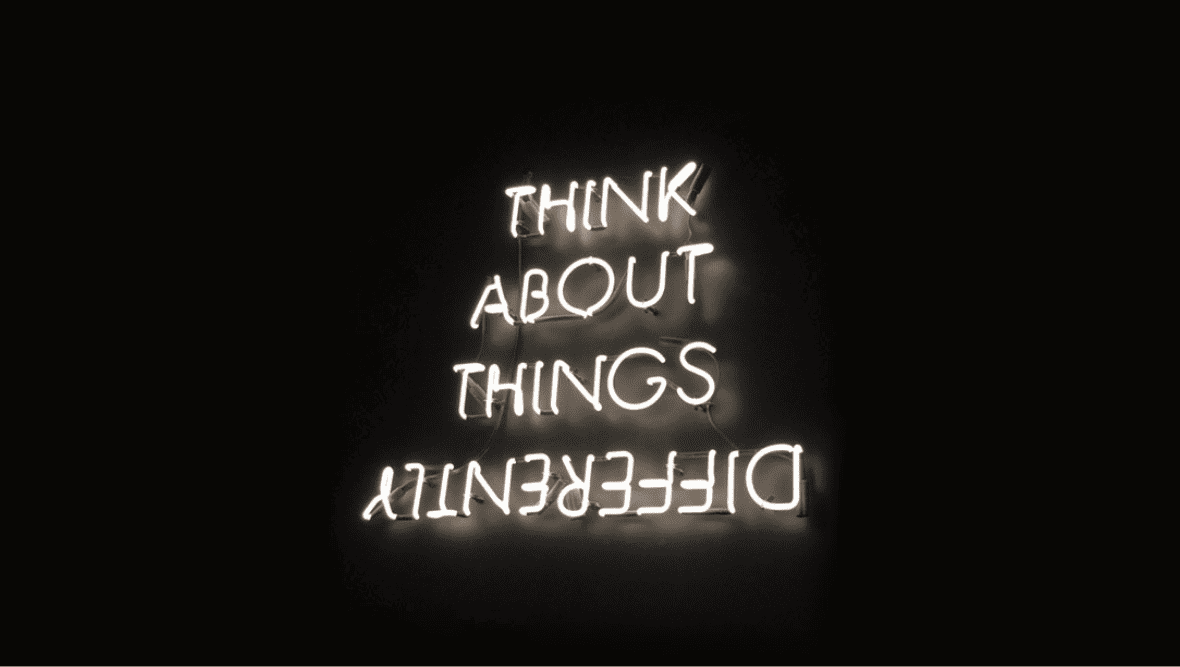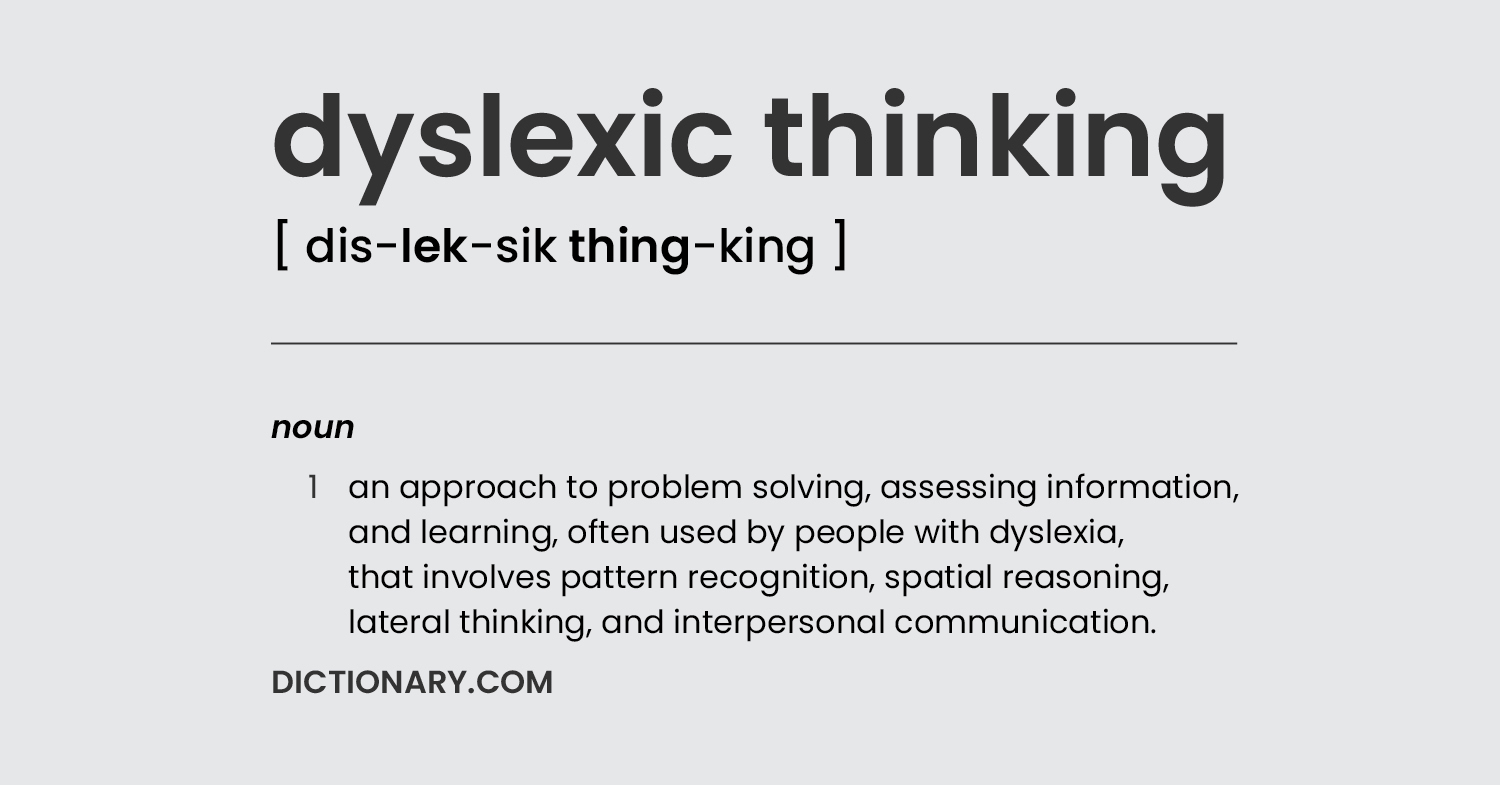
What makes a creative - are they born or made? Everyone has their own perspective on what it takes to have a uniquely inventive outlook. We asked Senior Creative, Mark Howarth, to talk about a subject close to his heart – how does dyslexia coincide with creativity, and can neurodivergence be an asset?
To think different.
‘Oh, you’re dyslexic, you must be really creative?’ It’s a phrase you may have heard said about others, it may even be a phrase you’ve used yourself. But is it true, are dyslexics more creative?
Before we can look at answering that question, we must first understand the source and effect that dyslexia has on people’s lives.
It’s estimated that up to 1 in 10 people in the UK has some degree of dyslexia but it is still often poorly understood. Dyslexia is a learning difficulty which primarily affects reading and writing skills. However, it does not only affect these skills. More accurately, dyslexia is about information processing.
Right brain, left brain.
Dyslexia is a neurological difference that can have a significant impact on education, in the workplace and in everyday life. And as each person is unique, so is everyone’s experience of dyslexia. It can range from mild to severe, co-occur with other learning difficulties and is usually hereditary.

This neurological difference affects the way the brain processes written and spoken information and is often described as ‘the way your brain is wired’. In non-dyslexics the left hemisphere of the brain receives information from the right visual field controlling speech, language and recognition of words, letters and numbers. While the right hemisphere governs creativity, context and recognition of faces, places and objects.
In dyslexics the brain develops an alternative method of processing reading and writing by utilising the frontal lobe and right hemisphere. What this means is the brain learns to look at problems from multiple angles and finds new ways to solve them. This different way of thinking can increase a dyslexic’s skills in problem-solving, lateral-thinking abilities, communication and heightened visual and spatial awareness.
Neurodiversity in the workplace.
Termed as ‘Dyslexic Thinking’ these skills and abilities are the characteristics that lead us to believe that dyslexics are ‘really creative’. From musicians, actors and writers too entrepreneurs, engineers and the tech industry, all show a high percentage of people who attribute their success to their dyslexic thinking. Showing these skills have a much further reach than just creativity.

On Thursday, 31st March 2022, LinkedIn added ‘Dyslexic Thinking’ to its recognisable skills list. As part of a campaign by the charity Made by Dyslexia, LinkedIn has given people a way of promoting their skills in a way that will hopefully destigmatise dyslexia with employers and businesses and bring about more public awareness.
“It’s time we all understand dyslexia properly as a different way of thinking, not a disadvantage.”
Sir Richard Branson, Virgin Group founder.
So, are dyslexics more creative?
According to scientific research, the jury is still out on this one. But it’s undisputed that a high percentage of creatives (among many professionals) possess the dyslexic thinking skills that are so sought after in the 21st century workplace. Now it’s time for businesses and employers to start looking at how these beneficial skill sets can be used to add value to the workplace and break the outdated and negative thinking that dyslexia is some kind of disability.
“Dyslexia isn’t a disability, it’s an inability in a linear environment, but a great ability in a creative one. Dyslexics are great at creativity, imagination, strategic thinking and problem solving.”
Dr. Chris Arnold, former creative director at the advertising agency Saatchi & Saatchi.
Ready to find a fresh approach? Our creative team make new ways of thinking their everyday. Speak to us about discovering a new perspective on your brand, business and marketing.
